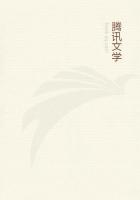Even in Marcy's times the question of our Government's Indian policy was a mooted one.He himself as an Army officer looked at the matter philosophically, but his estimate of conditions was exact.Long ago as he wrote, his conclusions were such as might have been given forty years later.
"The limits of their accustomed range are rapidly contracting, and their means of subsistence undergoing a corresponding diminution.The white man is advancing with rapid strides upon all sides of them, and they are forced to give way to his encroachments.The time is not far distant when the buffalo will become extinct, and they will then be compelled to adopt some other mode of life than the chase for a subsistence....No man will quietly submit to starvation when food is within his reach, and if he cannot obtain it honestly he will steal it or take it by force.If, therefore, we do not induce them to engage in agricultural avocations we shall in a few years have before us the alternative of exterminating them or fighting them perpetually.That they are destined ultimately to extinction does not in my mind admit of a doubt.For the reasons above mentioned it may at first be necessary for our government to assert its authority over them by a prompt and vigorous exercise of the military arm....The tendency of the policy I have indicated will be to assemble these people in communities where they will be more readily controlled; and I predict from it the most gratifying results." Another well-informed army officer, Colonel Richard Dodge, himself a hunter, a trailer, and a rider able to compete with the savages in their own fields, penetrated to the heart of the Indian problem when he wrote:
"The conception of Indian character is almost impossible to a man who has passed the greater portion of his life surrounded by the influences of a cultivated, refined, and moral society....
The truth is simply too shocking, and the revolted mind takes refuge in disbelief as the less painful horn of the dilemma.As a first step toward an understanding of his character we must get at his standpoint of morality.As a child he is not brought up....From the dawn of intelligence his own will is his law.
There is no right and no wrong to him....No dread of punishment restrains him from any act that boyish fun or fury may prompt.No lessons inculcating the beauty and sure reward of goodness or the hideousness and certain punishment of vice are ever wasted on him.The men by whom he is surrounded, and to whom he looks as models for his future life, are great and renowned just in proportion to their ferocity, to the scalps they have taken, or the thefts they have committed.His earliest boyish memory is probably a dance of rejoicing over the scalps of strangers, all of whom he is taught to regard as enemies.The lessons of his mother awaken only a desire to take his place as soon as possible in fight and foray.The instruction of his father is only such as is calculated to fit him best to act a prominent part in the chase, in theft, and in murder....
Virtue, morality, generosity, honor, are words not only absolutely without significance to him, but are not accurately translatable, into any Indian language on the Plains."These are sterner, less kindly, less philosophic words than Marcy's, but they keenly outline the duty of the Army on the frontier.We made treaties with the Indians and broke them.In turn men such as these ignorant savages might well be expected to break their treaties also; and they did.Unhappily our Indian policy at that time was one of mingled ferocity and wheedling.
The Indians did not understand us any more than we did them.When we withdrew some of the old frontier posts from the old hunting-range, the action was construed by the tribesmen as an admission that we feared them, and they acted upon that idea.In one point of view they had right with them, for now we were moving out into the last of the great buffalo country.Their war was one of desperation, whereas ours was one of conquest, no better and no worse than all the wars of conquest by which the strong have taken the possessions of the weak.
Our Army at the close of the Civil War and at the beginning of the wars with the Plains tribes was in better condition than it has ever been since that day.It was made up of the soundest and best-seasoned soldiers that ever fought under our flag; and at that time it represented a greater proportion of our fighting strength than it ever has before or since.In 1860 the Regular Army, not counting the volunteer forces, was 16,000.In 1870 it was 37,000--one soldier to each one thousand of our population.
Against this force, pioneers of the vaster advancing army of peaceful settlers now surging West, there was arrayed practically all the population of fighting tribes such as the Sioux, the two bands of the Cheyennes, the Piegans, the Assiniboines, the Arapahoes, the Kiowas, the Comanches, and the Apaches.These were the leaders of many other tribes in savage campaigns which set the land aflame from the Rio Grande to our northern line.The Sioux and Cheyennes were more especially the leaders, and they always did what they could to enlist the aid of the less warlike tribes such as the Crows, the Snakes, the Bannacks, the Utes--indeed all of the savage or semi-civilized tribes which had hung on the flanks of the traffic of the westbound trail.














